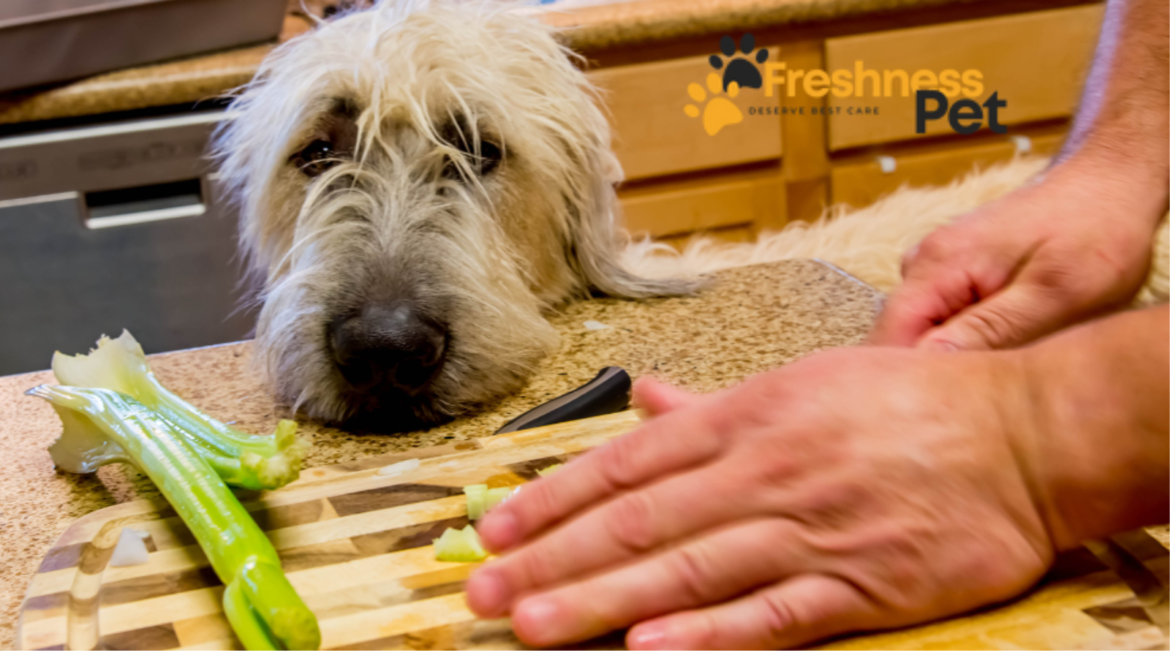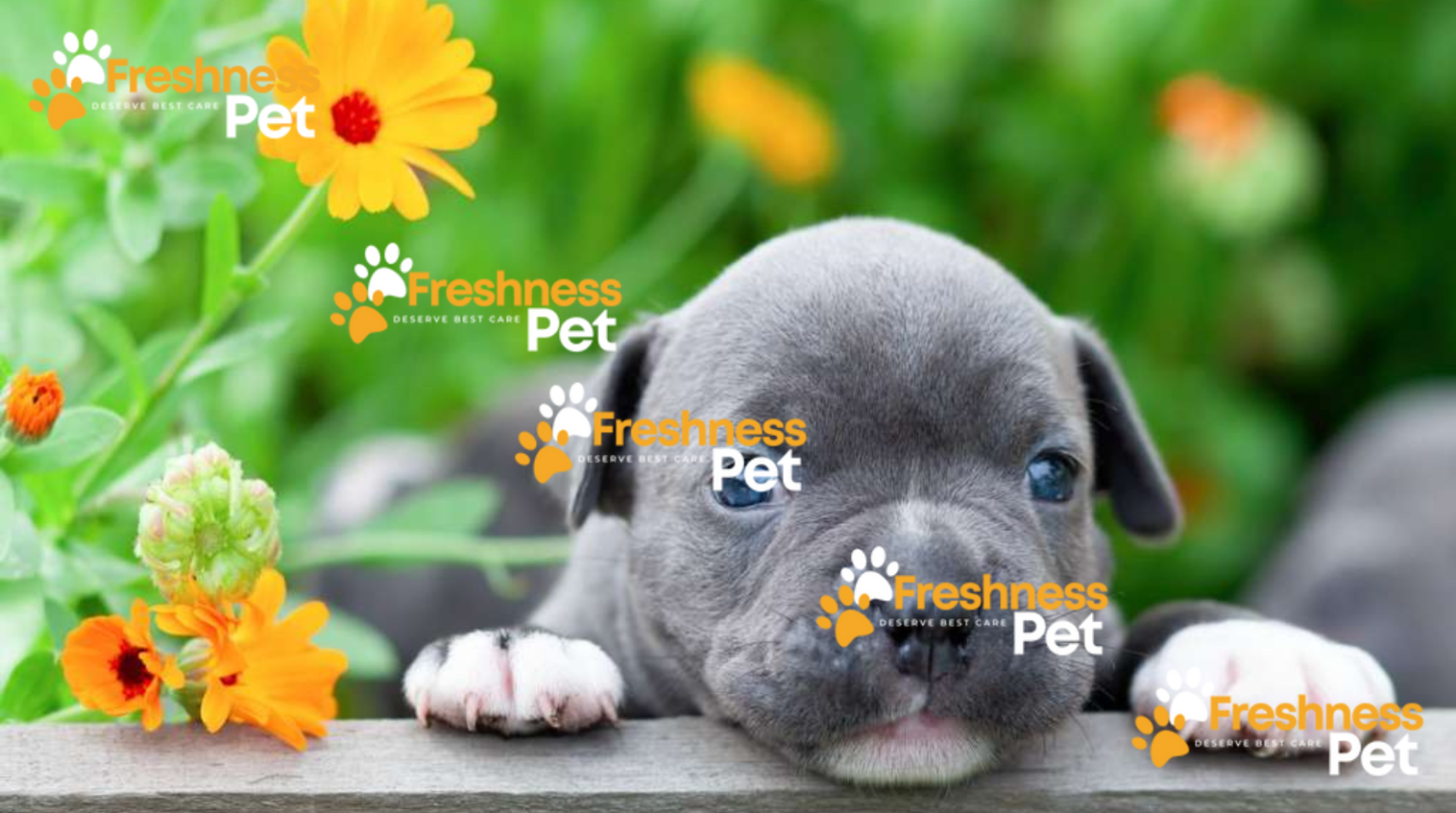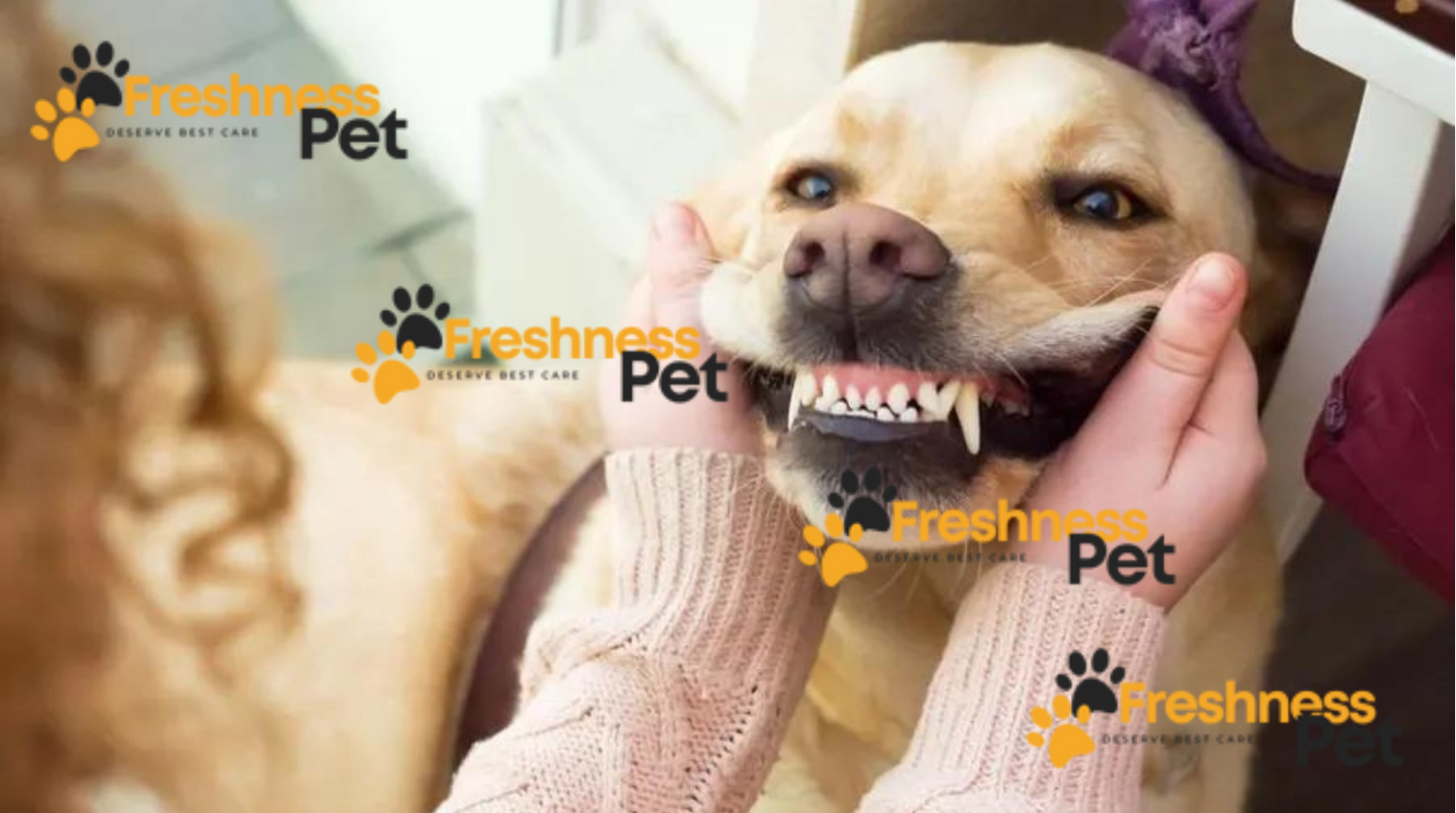Celery is just one example out of many different vegetables that are safe for dogs to eat in moderation. Some dogs may not enjoy eating celery even though it is crunchy, nutritious and refreshing. But if your dog likes the crisp, crunchy feel of raw carrots or apples, it might enjoy munching on some celery as well. In this article, we will discuss the health benefits of celery and how we can safely include it in our dogs diet. Keep reading to learn more.
Can Dogs Eat Celery? – Crisp, Low-calorie & Fibrous
Yes, it is safe and okay for dogs to eat celery without any harm when we give it in controlled portions. Many fruits and vegetables are the healthy snacks that are fed to the dogs in addition to their regular meals. However, not all are safe for dogs to eat which include onions, garlic, and mushrooms. It is always important to find out more information whether celery that is usually meant for humans is safe for your dog to eat.
Although a dog’s diet should mainly consist of meat to meet its nutritional needs, dogs are considered omnivores. Their digestive system is strong enough to effectively break down and absorb nutrients found in meat of animals and plant foods. It is not surprising to learn that most commercial foods for dogs include both meat and plant ingredients such as corn and rice. Other ingredients included in dog’s food contain dry potatoes, green peas and many fruits.
Recommended Celery Serving Sizes for Dogs:
You can serve celery to your canine friend in the following amounts:
- Small Dogs: 2-3 small slices per serving.
- Medium Dogs: 4-5 small slices per serving.
- Large Dogs: 6-8 small slices per serving.
You can serve celery to your pooch a few times throughout the week, but not every day. And you must adjust the amount of celery based on the vet’s advice and how your dog responds.
Benefits of Celery for Dogs:
Celery contains nutrient-rich and valuable vitamins A, C and K, folate and potassium as part of its composition. These healthy vitamins support various biological processes of the dog’s body and maintain its overall health. This veggie does not contain any fat, high in fiber and low in calories which makes an excellent treat for obese dogs. A medium size piece of celery is approximately 7 to 8 inches long and contains fewer than 6 calories. Chewing celery freshens your dog’s breath and helps clean its teeth and gums.
Risks of Celery for Dogs
Although celery is generally regarded as a healthy food option for dogs, there can still be some potential problems when feeding it to them. In case you serve too much celery to your dog then it results in certain medical complications.
1. Excessive urination:
Celery is a diuretic and helps the dog’s body get rid of excess water by allowing kidneys to produce more urine. In this way, if your dog eats an excessive amount of celery, then it urinates more than usual. The biological cells and tissues present in the dog’s body require water to prevent them from dehydration. However, in case of too much celery, they lose more water than usual.
2. Gastrointestinal upset:
If your dog ingests celery in moderate amounts then gasses build up as food is broken down in the stomach and intestines. While some gas is normal and part of the digestive process, however, eating too much celery causes your dog to pass the gas frequently through the rectum. The stomach of your dog experiences swelling due to excessive accumulation of gas, fluid and other substances. Moreover dogs may also suffer from nausea and vomiting by eating uncontrolled amounts of celery.
3. Diarrhea:
If your dog consumes large amounts of celery then the high fiber present in it speeds up digestion too quickly. In this case, your dog suffers from diarrhea and its intestines move food through too quickly. So its body does not have enough time to absorb water, which makes the stool loose and watery.
4. Gastrointestinal Blockage
Dogs do not digest raw vegetables well because the premolars and molars in teeths are well adapted for grinding meat instead of processing vegetables. They can chew and swallow vegetables but their teeth and digestive system are not suited for digesting plant materials. Unlike humans, some vegetables may pass through the stomach of the dogs without being fully broken down.
5. Choking:
When the pet owners do not chop the celery into small and manageable pieces then food content lodges into the trachea. When your dog chokes then it cannot breathe properly and coughs a lot. It makes a high pitched noise and its face and lips may turn a bluish color. In this way your dog feels scared.
How to Prevent Choking in Dogs?
Make sure you chop the celery into smaller pieces which helps your dog chew more easily. Your dog’s teeth can handle the smaller chunks and is less likely to cause choking. However it is important to monitor your dog while it eats food to ensure it is chewing properly without any trouble.
Safe Ways to Feed Celery to Your Dog
For better digestion, you can cook celery which becomes gentler on your dog’s stomach. Boiling vegetables ensures that dogs get the nutrients present in them without causing digestive issues. Here are the preparation steps which helps in making in the vegetables more palatable for dogs:
First of all, it is important to wash the celery thoroughly under lukewarm water to remove any debris. Next, you use a vegetable chopper or a chef’s knife to cut the celery about 1/2 to 1 inch wide and 1/2 to 1 inch long. Now boil the chopped celery by pouring it into a pot of water and let it boil for 5 to 10 minutes. After 10 minutes, celery becomes soft and before serving cooked celery to your dog, let it cool down.
Nutrient-Rich Foods Safe for Dogs:
Following are the list of most common vegetables that contain vitamins A, C, and K, as well as folate and potassium, and are safe for dogs:
- Carrots: Rich in vitamin A and good for eye health.
- Sweet Potatoes: High in vitamins A and C and potassium.
- Pumpkin: Contains vitamins A and C, and is also good for digestion.
- Spinach: Provides vitamins A, C, and K, folate, and potassium.
- Celery: Contains vitamins A, C, and K, as well as potassium and folate.
However, it is always suggested to introduce new foods gradually and consult a qualified vet before you plan to make significant changes to your dog’s diet.
Conclusion:
In summary, many people from all over the world ask the question “Can Dogs Eat Celery?”. The answer is Yes, we can give celery to our dogs in moderate amounts as an additional healthy snack. However it is important to be cautious about the risks of serving excessive portions of celery to your pooch which include bloating, diarrhea and vomiting. The teeths of every dog are not naturally designed to handle chewing of vegetables. As dogs are omnivores, their teeths can grind the meat particles effectively and process them in digestion. Celery is a type of vegetable which contains a high volume of fibers that speeds up the digestion process. Many pet owners prefer to cook and grind celery which softens the contents present in it.



